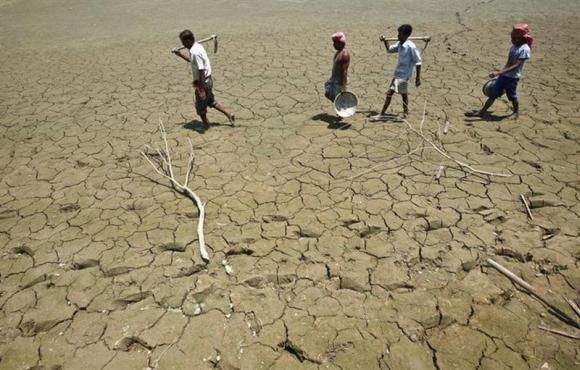The fifth report of the United Nations-backed Intergovernmental Panel on Climate Change (IPCC), released on Sunday, presents a picture that is far more scary than that outlined in any of its previous versions.

It also shifts the goalpost for climate mitigation action to ensure that the rise in temperature is contained to two degrees Celsius, which is essential to prevent irreversible damage to global climate and its perilous economic and health consequences.
The new target set by the IPCC requires phasing out the use of fossil fuels for power generation by the end of this century to bring down greenhouse gas (GHG) emissions to near zero.
That translates to cutting down the GHG emissions by 40 to 70 per cent by 2050 from the levels that prevailed in 2010.
For India, the implications of these changes are huge: shutting down its coal-run power plants, modifications to vehicular fuels, stopping the diversion of forest lands for infrastructure, industrial projects and other uses, and sweeping changes to agriculture and other economic activities.
Given the overwhelming scientific consensus that the IPCC reports represent, their conclusions cannot be overlooked.

Nor can their recommendations be disregarded in economic and environment policy formulation.
The latest report is particularly significant because it is likely to form the basis for negotiations leading, hopefully, to drafting an agreement to succeed the expired Kyoto protocol on climate change at Lima next month for final approval at Paris in December 2015.
One reason why many of the IPCC's warnings and prescriptions get less attention than they merit is that their projections usually pertain to the distant future rather than to the hazards on hand, such as environmental pollution and weather-induced natural calamities.
In fact, India is already facing the consequences of climate change.

Air pollution data released recently by the World Health Organization show that 13 of the world's 20 most polluted cities are in India and that the dirtiest air on this planet is in Delhi.
Worse still, the cities ranked second, third and fourth for their poor air quality are also in India.
This is a matter of grave concern requiring immediate remedial steps, especially because the high concentration of fine particulate matter (measuring less than 2.5 micrometres or PM2.5) recorded in these cities can cause breathing disorders, heart diseases and cancer.
The country is also a victim of an increased number of intense rainfall events, and of severe cyclones that were rare earlier.
The pattern of monsoon rainfall, the lifeline of the country's agriculture, too, seems to have changed noticeably, necessitating continual last-minute alterations in cropping plans.

India's National Action Plan for Climate Change can take care of many of these aspects provided it is implemented meticulously.
This, unfortunately, is not the case, particularly with regard to some of its components.
The content of solar, wind, hydro and bio energy in the total energy use needs to be progressively stepped up.
At the same time, forests need to be preserved and upgraded to sequester greater amounts of GHGs and to cleanse the air of other pollutants.
Equally important are adaptation measures to alleviate environment-induced economic losses.











